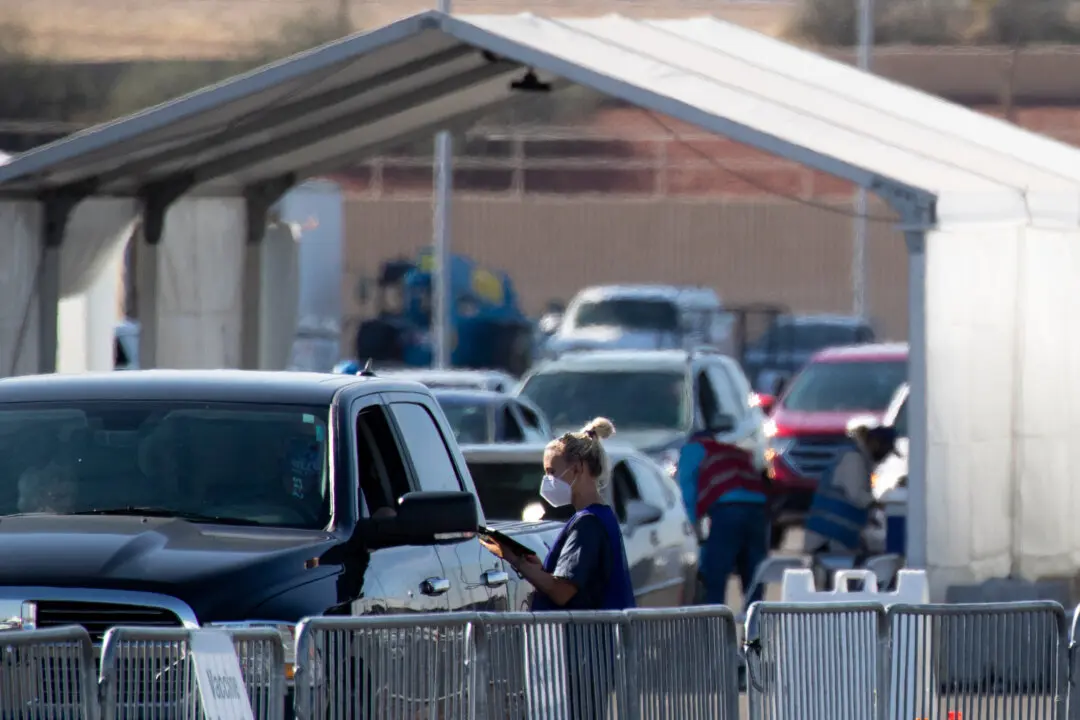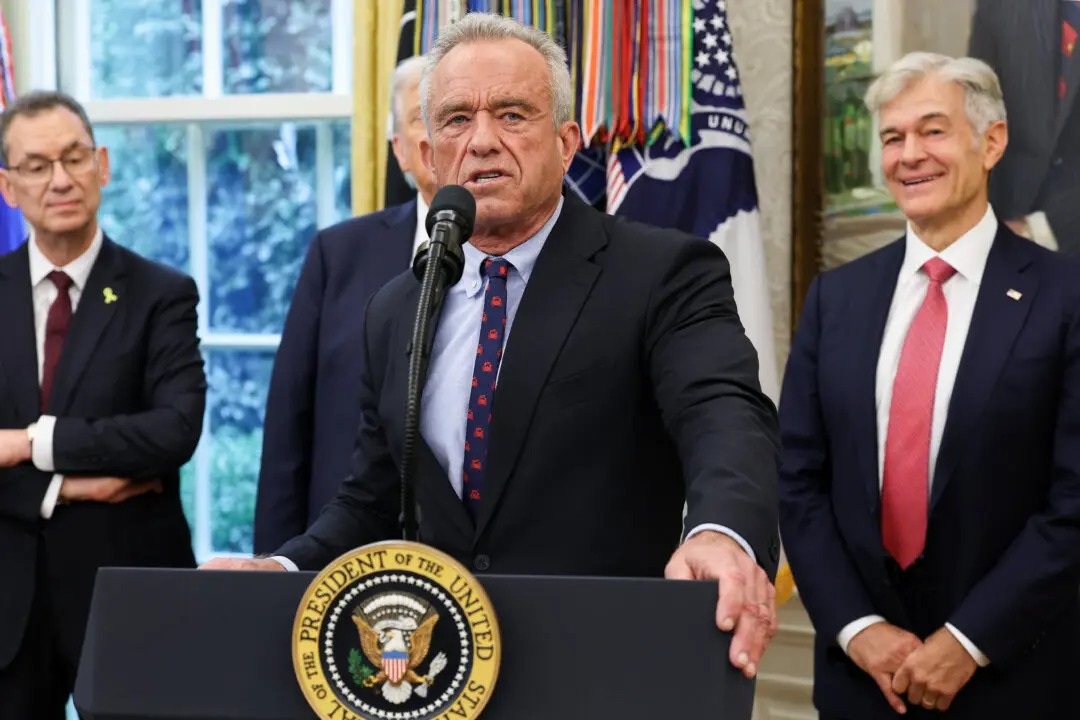The White House on May 13 corrected its false claim that COVID-19 vaccines weren’t available when President Joe Biden took office but neglected to delete the claim.
The White House’s official Twitter account posted the claim earlier in the day, writing that “when President Biden took office, millions were unemployed and there was no vaccine available.”





